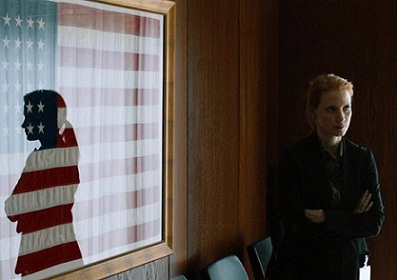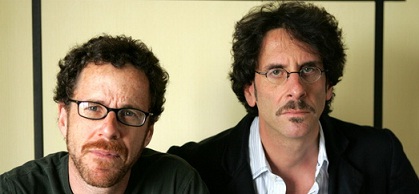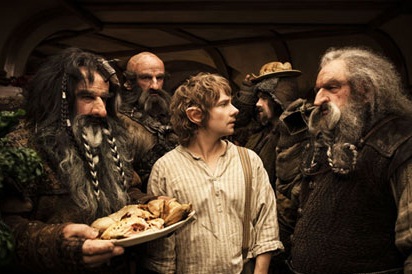Directors and their egos
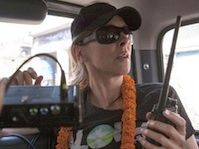
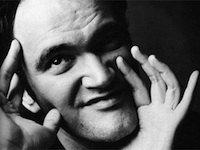
The Times has an interview with Kathryn Bigelow that seems to want to be a character study of who she is, what her creative process is like, and what her body of work says about her as a person. But it almost completely fails: the interviewer concludes that she's incredibly self-effacing, generous in praising her crew, modest about her own formidable chops, and would rather let her work speak for itself than do much reflecting on her craft.
Case in point, after she goes on about her amazing production designer, editor, sound editor, and finally her cinematographer for Zero Dark Thirty:
At this point Mark Boal [the screenwriter], who had joined the lunch, interrupted.
"Kathryn, can you give yourself a little credit?" he said. "It was really risky — there was no precedent for that kind of technique — and you and Greig embarked on that risk together."
Ms. Bigelow said quietly, "That's true."
Contrast this with an interview the Times did about a week ago with Quentin Tarantino, which makes him sound so self-aggrandizing and egomaniacal that he would be repellent if we didn't already know, hey, that's QT.
In this bit, he's asked about how his actors seem to give wonderful performances in his movies. He responds:
So the great performances actors deliver in Tarantino movies are attributable to: 1) Tarantino's writing, 2) Tarantino's casting, 3) Tarantino's direction, and 4) Tarantino's understanding of Tarantino's material.
I wonder if the movie industry and everybody would feel so positively about Kathryn Bigelow if she gave interviews like that. I don't necessarily think she's so highly regarded because she's modest and deflects praise so graciously, but these are traits that tend to be admired in women more than traits like, for instance, hogging all the credit.
Bigelow's got a good chance of winning another Best Director Oscar in 2013--Tarantino was also nominated when she won in 2010. I guess he'll probably get nominated again for Django Unchained, which is good, but not as good as Inglorious Basterds, or a bunch of his other movies. (It would be great if he won for writing, though.)
Basterds had great style, a few incredible scenes, and a phenomenal and glorious revenge sequence with the movie theater going up in celluloid flames and Shoshanna's laughing ghostly face. It was awesome. Plus the movie had Christoph Waltz, who is absolutely mesmerizing in everything he says and does.
Django is similar: stylish, a great revenge story, some really good scenes, Christoph Waltz. I hope all Tarantino's movies from now on will feature an exceptionally well-mannered German-Austrian professional killer for Christoph Waltz to play.
But the final showdown scenes (both of them) weren't as satisfying as any of Tarantino's other recent revenge scenes. Think about that burning movie theater in Basterds, or the girls making Kurt Russell cry in Death Proof, or every time The Bride killed one of her old partners in Kill Bill. Those sequences were a lot more creative and exciting than what we got in Django--we've all seen big final shootouts a million times in other movies, and this one didn't add much.
The best things about Django are the long scenes with Christoph Waltz and Leonardo DiCaprio going through the charade of their evil business transaction, dripping with sinister charm. And the very end, where Django essentially blows up Tara. Slavery isn't something American movies have tackled well at all--before this, we pretty much had Gone With the Wind and Amistad. And in neither of those movies does a former slave get to mow down an entire plantation full of white people who uphold and profit from slavery in an extended sequence of righteous, bloody justice. So that counts for a lot.
I also like the beautiful montage sequence of our two heroes riding around in snow-covered western mountains, hunting bad guys and forming an unlikely partnership, with Jim Croce's "I Got a Name" on the soundtrack. It's always Super Sounds of the Seventies, even in a slavery revenge western.
